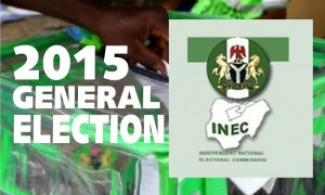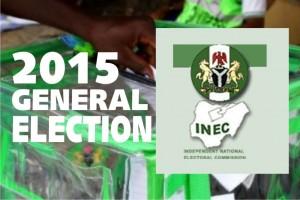
Of all African elections in 2015, a whole lot is at stake in Nigeria. USA Secretary of State John Kerry signaled this much with his visit and messages to President Goodluck Jonathan and General Muhammadu Buhari. When anything goes wrong in giant Nigeria, Africa rattles and the world quakes. Prevention of upheavals is best.
Africa is witnessing some 14 elections this year. Nigeria is one of the countries expected to have elections early in the year, after Zambia that voted in January to elect President Edgar Lungu to serve through two years only, being the unfinished mandate of President Michael Sata who died. Lesotho will vote on the last day of February to resolve its political turmoil that almost set the country on fire but for intervention by South Africa.

Of all African elections in 2015, a whole lot is at stake in Nigeria. USA Secretary of State John Kerry signaled this much with his visit and messages to President Goodluck Jonathan and General Muhammadu Buhari. When anything goes wrong in giant Nigeria, Africa rattles and the world quakes. Prevention of upheavals is best.
Nigeria attracts attention for many good and bad reasons. For the present, let us deal with the good reasons, many of them obvious – its enormous population, economic attraction including huge oil reserves, citizens who are present all over the world, many of whom are distinguished men and women, Nollywood, faith and religion tourism… In the past months, the well known Boko Haram insurgency and its seemingly unstoppable horrible acts, and elections have concentrated world’s attention on Nigeria.
Let us look closer into what the world thinks of the elections that are coming up soon. What comments, advice and analysis emanate from various sources outside Nigeria?
The information available can be characterized as follows: First major election that shakes the dominant political party People’s Democratic Party (PDP) since 1999; the electoral contest is mainly between two major parties; highly polarized electorate that has dug in its heels in the face of rising importance of faith and ethnicity, resulting in a divided nation; violence during electioneering and very likely potential for violence after results are known; questions on readiness, capacity, credibility of Independent National Electoral Commission (INEC); democracy will shake the country to its roots but Nigeria will remain one; huge presence of international observers and media.
Let us take the categories one by one.
With little practice of democracy since independence in 1960, the new political order that began in 1999 is seen widely as the true beginning of democratic party politics. Until some two years ago the dominance of PDP and its capacity to win elections easily was never in question. But the table turned when a new alliance of the opposition parties merged to form the All Progressives Congress (APC) which was strengthened by defections mostly from PDP. APC is the party to beat in the elections and PDP will not be the same anytime soon, the reports conclude.
Even though the reports acknowledged that many political parties are contesting elections, the main electoral rivalry is between PDP and APC. Some small parties may win at best a few state leadership offices.
Despite issues around abilities of political parties to deliver on promises made to the electorate during 2011 campaigns and voters’ critical assessment of programmes and policies of parties, the major decision points of the elections will centre on ethnicity and religion which has emerged strongly. The two leading parties are seen to be more similar than different. No matter what campaign rhetorics and promotional adverts are done, not much change of voters’ positions is expected.
Violence as a recurring theme on the elections is seen in almost all analysis and reports. Reasons for violence are many but the most commonly stated are: past records of previous electioneering; dissatisfaction with results of elections as seen subjectively by groups of electorates; vicious and fierce contests among candidates; closeness of results; increased availability of firearms and weapons. The national government which is formed by PDP is seen as the most able to ferment violence if it so wishes through its control and use of the security apparatus. Interestingly, the same government is also seen as the most responsible and capable of dousing and limiting violence through the control and use of same forces.
Questions are raised on the readiness of INEC and its capability to handle the massive elections that have generated unprecedented interest among Nigerians. Cited are numbers that show that a high percentage of potential voters do not have their permanent voters card which is the only accepted voting document. (The number of permanent voters cards distributed by INEC has increased considerably since the reports were published.) The concerns of possible disenfranchisement and legal challenges that may arise thereof worry some analysts. Also mentioned are implications of limited or un-representative elections in three North-Eastern states of Nigeria where Boko Haram has out staged government forces.
Notwithstanding some strong criticisms of the electioneering style and practice, none of available reports saw an alternative to party politics and its attendant voting norm. In fact, whilst several policy analysts raise the specter of disintegration of Nigeria if the elections are not conducted properly, the same opinionists conclude that Nigeria will remain one in the given circumstance. The elections will be a strong test of the stage of development of democracy in the country, but it will not divide the country, according to various analysis.
An angry Ghanaian based in the USA complained of use of his or her country to advertise the elections in Nigeria. “Ghana Is Not Nigeria's Political Football Stadium”, the title of the article screamed. He chastised his compatriots “back home who would not hesitate to offer themselves, and even their very families and relatives, as slaves to Nigerians if they deemed the price to be right…the territorial integrity of Ghana precludes our country from being used as a theatrical adjunct or an electioneering campaign outpost of Nigeria.” (Obviously this writer was not amused by special efforts made by some enthusiastic persons in Ghana to get potential voters to travel home and exercise their voting rights. Absentee voting or voting from abroad is not yet accepted in Nigeria.)
Many countries, organizations, both governmental and non-governmental, are sending observers to Nigeria for the elections. With a large number of journalists being accredited to cover the elections, in addition to those who are based there already, it is correct to say that the world will watch closely the coming elections.
• Makinwa is a communication for leadership entrepreneur based in South Africa and Nigeria.
Twitter: @bunmimakinwa
(This article was written before the postponement of elections in Nigeria)